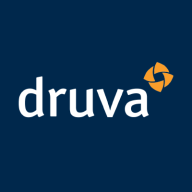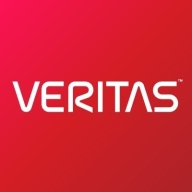

Veritas CloudPoint and Druva Phoenix compete in the cloud data protection and management space. Druva Phoenix seems to have the upper hand with its robust feature set.
Features: Veritas CloudPoint provides flexible snapshot management, seamless cloud integration, and efficient data protection across multi-cloud environments. Druva Phoenix offers a unified data protection platform, enhanced global deduplication, and comprehensive analytics, positioning it as a strong choice for enterprises.
Ease of Deployment and Customer Service: Veritas CloudPoint has a flexible deployment model and strong support, easing setup and ongoing management. Druva Phoenix offers a cloud-native deployment model praised for its simplicity and efficiency, backed by a responsive customer service team.
Pricing and ROI: Veritas CloudPoint is known for cost-effective setup and optimized pricing, attractive for budget-conscious organizations. Druva Phoenix, despite higher initial costs, offers notable ROI through extensive features and efficiencies, potentially justifying the expense for those emphasizing comprehensive protection.


Druva Phoenix is a comprehensive cloud-based data protection and management solution that enables organizations to securely backup, recover, and manage their data across endpoints, physical servers, virtual machines, and cloud applications. With its scalable and flexible architecture, Druva Phoenix simplifies data protection and eliminates the need for traditional backup infrastructure.
By leveraging the power of the cloud, Druva Phoenix offers organizations a cost-effective and efficient way to protect their critical data. It provides automated backup and recovery capabilities, ensuring that data is always protected and easily recoverable in the event of a disaster or data loss. With its global deduplication and compression technology, Druva Phoenix minimizes storage requirements and reduces costs.
Druva Phoenix also offers advanced features such as point-in-time recovery, allowing organizations to restore data to a specific point in time, and granular file-level recovery, enabling users to recover individual files or folders. Its intuitive web-based console provides a centralized view of all protected data, making it easy to manage and monitor backups across the entire organization.
In addition to data protection, Druva Phoenix offers comprehensive data management capabilities. It enables organizations to gain insights into their data through advanced analytics and reporting, helping them make informed decisions and optimize their storage resources. Druva Phoenix also supports legal and compliance requirements by providing eDiscovery capabilities and ensuring data is retained and disposed of according to regulatory guidelines.
With its cloud-native architecture, Druva Phoenix offers organizations the flexibility to protect and manage their data across a wide range of environments, including on-premises, remote offices, and cloud applications such as Microsoft 365 and Google Workspace. It seamlessly integrates with popular cloud platforms like AWS and Azure, allowing organizations to leverage their existing cloud investments.
With Veritas CloudPoint, you get the visibility and control from one intuitive central dashboard to confidently manage and easily orchestrate enterprise data protection for your business data consistently across the broadest range of applications and workloads, in both private and public clouds, helping you to transform your organization into a confident multi-cloud digital enterprise.
We monitor all Cloud Backup reviews to prevent fraudulent reviews and keep review quality high. We do not post reviews by company employees or direct competitors. We validate each review for authenticity via cross-reference with LinkedIn, and personal follow-up with the reviewer when necessary.